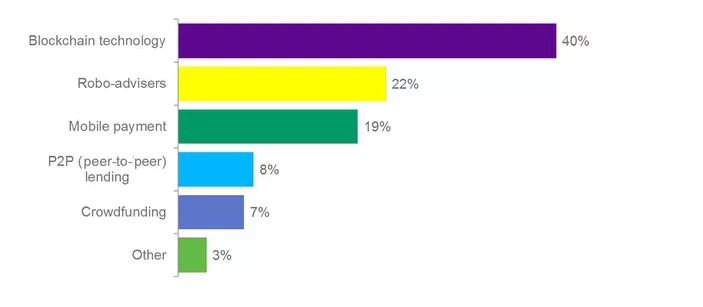
Fintech: what will bring the most change?

Fintech has increasingly captured the attention of the financial services industry over the past several years.
Since I started writing on the topic about a year ago, the discussion has evolved from simply defining fintech to more involved narratives about its potential drawbacks.
In that time, our focus on the subject has never wavered. Why? Because fintech will have a significant and potentially revolutionary influence on a broad set of sectors within the financial services industry and across the globe.
Finance professionals have two basic questions about fintech and what it means for them:
- How will fintech positively affect their careers? The thought is that fintech will bring about efficiency gains that benefit those who embrace the innovations first — the early adopters. What aspects of fintech will drive much of these improvements? The consensus is that big data and cyber security will be among the major catalysts.
- How will fintech negatively affect their careers? For example, will peer-to-peer (P2P) lenders replace banks as the preferred platform or intermediary for borrowing and lending? If the answer is yes, then bank loan officers and credit risk analysts should start looking for alternative careers. The particular areas of fintech that evoke this sort of existential concern include blockchain, mobile payment, P2P lending, and robo-advisers.
Though the above distinctions are somewhat arbitrary, as we see it, the potential for disruption is far greater in the latter categories — blockchain, mobile payments, etc. — than in the former.
Is this assessment accurate? To find out, we asked CFA Institute Financial NewsBrief readers what aspect of fintech they believe has the potential to most transform the finance sector as we know it.
In which of the following areas do you think fintech will bring about the most significant changes to the financial services industry?

* Results do not add up to 100 per cent due to rounding.
The responses of our 333 poll participants suggest that interest in blockchain technology has risen to an all-time high, with four out of 10 readers opting for that choice. Another 22 per cent are believers in robo-advisers. Compared to a previous CFA Institute fintech survey , these results suggest that blockchain technology has leapfrogged robo-advisers when it comes to the finance industry’s perception of its potential influence as an agent of change in the years ahead.
The third most-popular option in the CFA Institute Financial NewsBrief poll was mobile payment — propelled by dramatic successes in China and other parts of the world — with 19 per cent of the vote.
Survey respondents found P2P and crowdfunding to be less glamorous trades, earning 8 per cent and 7 per cent, respectively. Given the variety of scandals in China’s P2P space and Lending Club’s lackluster US performance, these results are not especially surprising.
If you liked this post, don’t forget to subscribe to the Enterprising Investor.